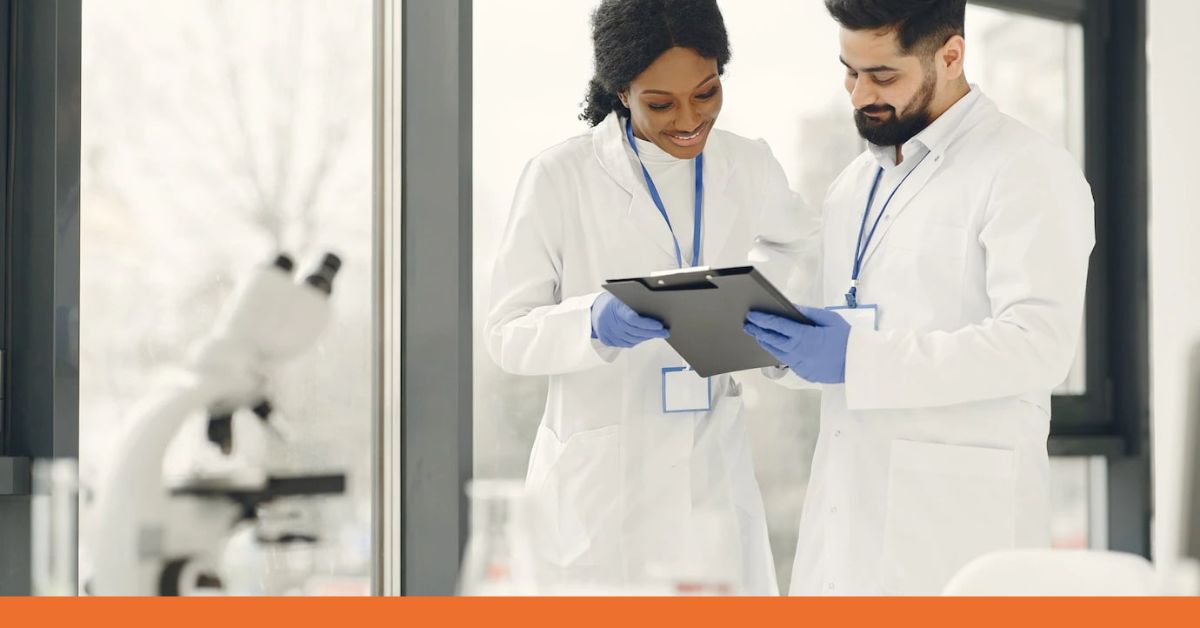
Laboratory tests are an important part of diagnosing, managing, and monitoring diseases. They can be used to diagnose or rule out a variety of conditions. Thus, knowing how to prepare properly for a laboratory test is essential to ensure your results are accurate and reliable. Thankfully, DOCS Urgent Care & Primary Care Fairfield, a reputable urgent care in Fairfield, CT, offers laboratory tests for blood and urine samples.
Laboratory tests are an essential tool used by healthcare professionals in urgent care Fairfield, CT, facilities to diagnose and monitor various medical conditions. These tests can detect and measure the presence of certain substances in the body, such as hormones, enzymes, and antibodies, and can also evaluate the function of certain organs and systems, such as the liver and kidneys.
Laboratory tests can provide crucial information about a patient’s health, including the presence of a disease or infection, the effectiveness of a treatment, and the risk of developing a certain condition. They are also used to monitor a disease’s progression and detect any changes in health status. By providing accurate and timely information, laboratory tests play a vital role in diagnosing, treating, and managing various medical conditions and are essential for maintaining good health.
While these tests are crucial and essential, going through the process can also be stressful, especially if you don’t know what to expect. To get the most out of these tests, here are 10 essential steps you should follow before doing a laboratory test in an urgent care Fairfield, CT, facility.
Understanding what type of test you need before going to urgent care in Fairfield, CT, is noteworthy because it can help you properly prepare for the test and ensure that the results will be accurate. Different tests may require different preparation instructions, such as fasting or avoiding certain medications.
Additionally, knowing what type of test is being done can help you understand the purpose of the test and what the results will be used for. This information can also help you to communicate more effectively with your healthcare provider and make more informed decisions about your care.
Blood tests are done for a variety of reasons. For one, it helps healthcare providers to evaluate an individual’s overall health status, identify any potential health problems, and monitor the effectiveness of treatments. They can also be used to diagnose and monitor a wide range of medical conditions, such as:
Blood tests usually involve drawing a blood sample from a vein in the arm using a needle and syringe. This is typically done by a healthcare professional in urgent care in Fairfield, CT, such as a nurse or phlebotomist. Before the test, the healthcare professional will clean the area of the arm where the blood will be drawn and wrap an elastic band around the upper arm to make the vein more visible.
They will then insert a needle into the vein and collect blood samples into a tube or vial. The amount of blood drawn will depend on the type of test being done. The needle will be removed, and a bandage will be applied to the site where the needle was inserted.
The collected sample will then be sent to a laboratory for analysis. Different tests may look for different things in the blood, such as glucose levels for diabetes, complete blood count (CBC) for anemia or infection, or electrolyte levels for kidney function.
The process usually takes just a few minutes, and most people experience only minor discomfort, such as a small pinch or sting, when the needle is inserted. The test results usually take a few days to be available, and they will be interpreted by a healthcare provider who will discuss them with you and explain what they mean for your health.
It’s important to note that some blood tests may have specific instructions for preparation, such as fasting for a certain number of hours before the test or avoiding certain medications that could affect the results.
Urine tests, also known as urinalysis, are non-invasive and relatively painless tests done to evaluate a person’s overall health status, screen for and diagnose various conditions and diseases, identify any potential health problems, and monitor the effectiveness of treatments.
Some of the reasons why people do urine tests include the following:
The urinalysis process in urgent care in Fairfield, CT, typically involves collecting a urine sample and then analyzing it in a laboratory. The collection process is usually done in a private room or area, and the patient is given a sterile container to collect the sample. The patient is usually instructed to provide a mid-stream urine sample, which means the patient has to clean their genital area before providing a sample and discard the first part of their urine. This process is done to prevent contamination of the sample.
Once the sample is collected, it is sent to a laboratory for analysis. The laboratory may perform a variety of tests on the sample, including:
The results of the urinalysis are usually available within a day or two. The healthcare provider will then interpret the results and discuss them with the patient, explaining what they mean for their health. It’s important to note that some urinalysis may have specific instructions for preparation, such as avoiding certain medications or foods that could affect the results.

Once you have decided to have laboratory tests done, getting a requisition form from your healthcare provider is necessary. A requisition form contains information about the test that will be done, such as the name of the test and which laboratory will do it. It also includes instructions on how to prepare for the test, including any special instructions or restrictions.
Once you have the requisition form, it is important to call the urgent care Fairfield, CT, facility to get in touch with their laboratory personnel and make an appointment for your tests. It’s essential to note that there may be waiting times for certain tests, so it’s wise to call in advance to ensure that you can get an appointment when you need it.
When preparing for laboratory tests, it’s important to follow all the instructions given to you by your healthcare provider or urgent care center in Fairfield, CT. These instructions may include fasting and avoiding certain medications or activities that could affect the results. It’s also important to take any medications that have been prescribed as directed.
If your urgent care Fairfield, CT, healthcare provider has instructed you to take medications or supplements before the test, it’s crucial to do so. This may include taking antibiotics if a bacterial infection is suspected or taking vitamins if deficient levels are detected in the body.
After completing the laboratory tests, it’s important to follow any post-test instructions your chosen urgent care center in Fairfield, CT, gave. These may include avoiding certain activities or medications or getting retested if necessary. Following these instructions is essential for ensuring accurate results.

Once you have the results of the laboratory tests, it’s important to discuss them with your healthcare provider to understand the implications of the data and act accordingly. Your urgent care center in Fairfield, CT, may also provide additional information or advice on how best to manage the diagnosis and prevent further complications.
If abnormalities were detected in your laboratory tests, it’s important to make necessary lifestyle changes to ensure that your health is not compromised further. This may include eating a balanced diet, exercising regularly, quitting smoking or drinking alcohol, and reducing stress.
It is essential to get regular blood and urinalysis tests to detect any changes that may have occurred over time and monitor your health status. Your urgent care center in Fairfield, CT, can provide regular check-ups or urgent tests when necessary.
In addition to laboratory test screenings, schedule regular check-ups with your urgent care Fairfield, CT, healthcare provider to monitor your overall health and wellness. This will help detect any underlying medical issues that may be present and make sure that you are taking the correct steps to maintain your health.
By following these 10 essential steps, you can ensure that you are properly prepared for laboratory tests and get accurate results. If you have any questions or concerns about how best to prepare for a laboratory test, consult with DOCS Urgent Care & Primary Care Fairfield.
They offer primary care and urgent care services in Fairfield, CT, and can provide you with the information and support you need when preparing for laboratory tests. DOCS Urgent Care & Primary Care Fairfield is dedicated to providing high-quality healthcare services in a comfortable and convenient environment.
Contact them today to schedule your laboratory tests!

During this surge in COVID-19 cases, our primary focus is meeting the high demand for tests, and we are seeing higher than usual wait times. This means we are unable to answer most phone calls. Please know that our teams are working very hard during this time to care for as many patients as safely as possible. Please click the button below for answers to common questions. We appreciate your understanding.